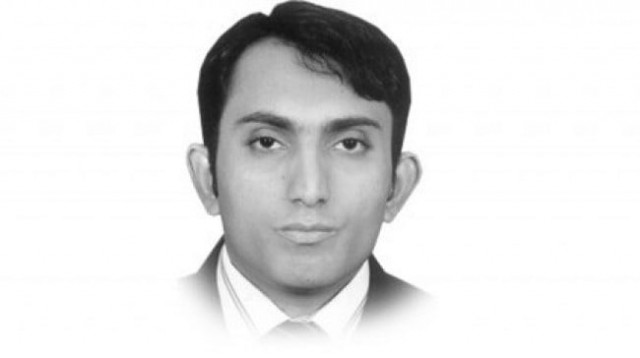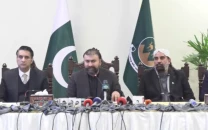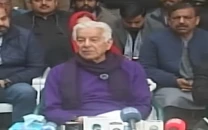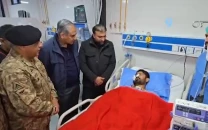Baloch nationalism gone wrong

Baloch nationalism gone wrong
Mengal’s meeting with the prime minister took place at a time when Baloch society is internally polarised: Moderates, such as the Balochistan National Party (BNP) believe in parliamentary struggle within the federation of Pakistan but with maximum autonomy and ownership of natural resources granted to the province(s). The second segment is unwilling to settle for anything less than the independence and backs violence to achieve these goals.
A meeting that was intended to seek the assistance of a respected Baloch leader in order to reconcile with the disgruntled people of Balochistan has expectedly backfired. The Gilani-Mengal summit has initiated what seems to be an internal quarrel between the Mengals, who lead the biggest nationalist political party, and the Marris, who presumably head the armed struggle.
Such sharp differences have not been seen in the past 30 years in the political history of Balochistan among the nationalists themselves. Both groups have chosen local Urdu newspapers as a platform to complain of the “other’s ‘disservices to the Baloch cause”. They have resorted to making personal attacks on each other’s leadership in a series of statements published on a daily basis in local newspapers. In a tribal set-up like that of Balochistan, attacks on tribal elders is an extraordinarily dangerous phenomenon which could trigger feuds.
First it is was the Anjuman-e-Ittehad-e-Marri, an organisation of the Marris, which criticised Sardar Mengal’s meeting with the prime minister by terming it as a sell-out of the Baloch case. In response, the BNP castigated the Marris for not being concerned about the rights of the Baloch people but only that of the Marris. The differences between the two tribes clearly demonstrate the flaws of the Baloch nationalist movement and have pushed the movement by several decades back. A movement that had gained overwhelming sympathy across the country, and even internationally in the wake of the killing of Nawab Bugti, is now losing support due to target killings of teachers.
“These differences sadly remind us that the Baloch nationalist movement has not fully matured yet. Most Balochis still prefer to identify themselves on tribal lines,” points out one veteran Pashtun nationalist leader. “It is not as if there are no differences among the Pashtun nationalists. The difference is we do not harm each other physically irrespective of the level of political differences. In the case of Baloch nationalists... a verbal argument may lead to deadly clashes among tribes.”
If the Baloch leadership does not immediately overcome the new phase of differences, they will not only fail to collectively fight for the rights of the impoverished Baloch people but their differences could give birth to a deadly tribal civil war in the country’s largest province.
Published in the Express Tribune, May 20th, 2010.


















COMMENTS
Comments are moderated and generally will be posted if they are on-topic and not abusive.
For more information, please see our Comments FAQ